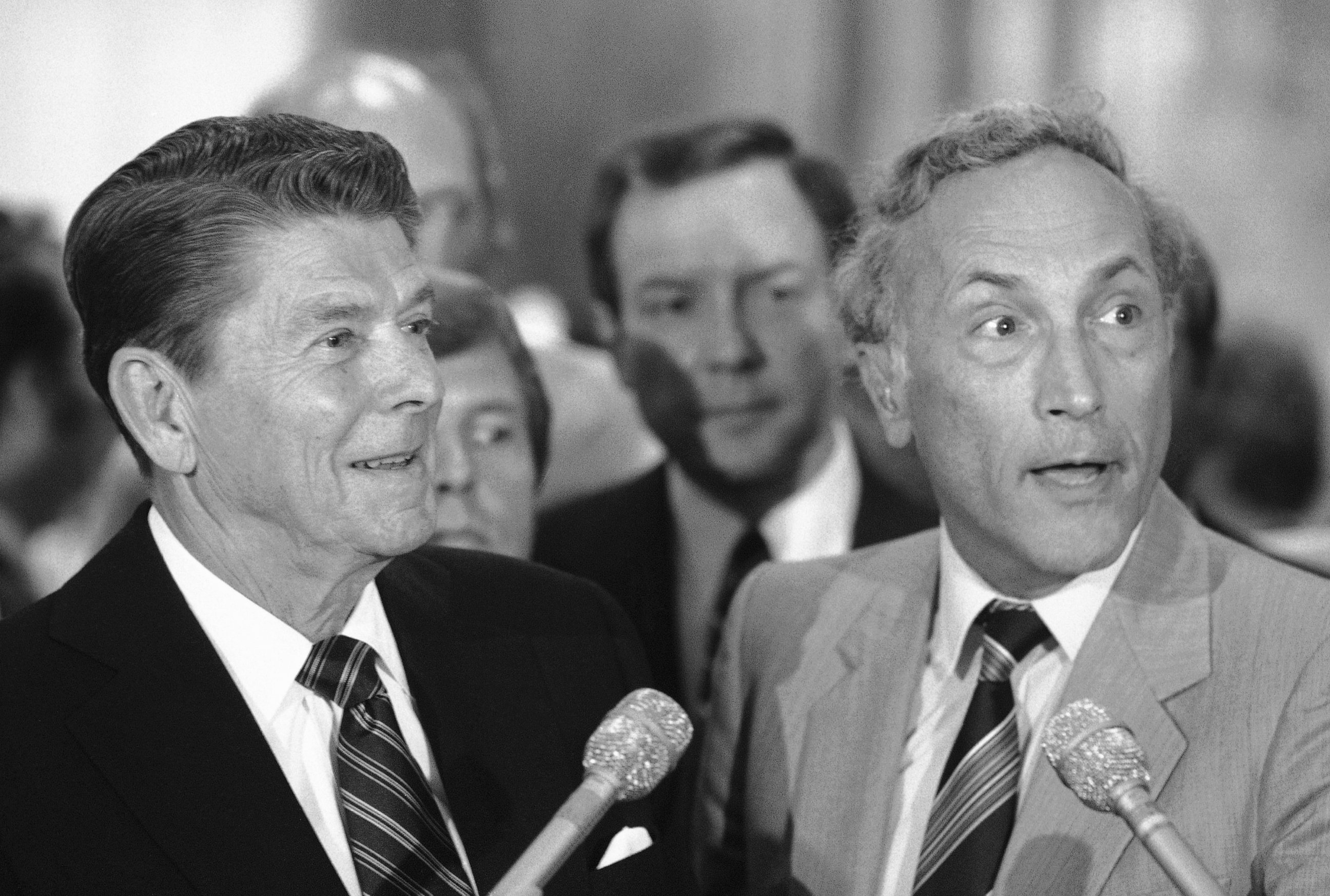The Pros and Cons of Picking a VP Candidate Early
It would be a risky move if anyone tried it this year, experts say.
— -- With the new alliance between presidential competitors Sen. Ted Cruz and Gov. John Kasich announced publicly this weekend, that opens the door to speculation about other possible moves up their sleeves.
If one of the candidates were to name a vice presidential running mate before they were officially declared the party's nominee, it wouldn't be the first time.
Unfortunately, it didn't turn out so well when someone tried it before.
In 1976, Ronald Reagan was running for president for the first time and losing the delegate race to then-President Gerald Ford.
That contest was the last time when a major party's nominee was not pre-selected going into the convention, giving the delegate count on the first ballot the final say.
In an effort to gain an edge, Reagan picked a running mate even before clinching the nomination himself.
"John [Sears, Reagan's campaign director] hoped that Ronnie's early choice of a running mate would signal that the race still wasn't over," Nancy Reagan wrote in her memoir "My Turn."
Reagan announced then-Sen. Dick Schweiker as his running mate.

"I remember at the time it was considered unprecedented," said James Campbell, a professor of political science at the University of Buffalo.
"To say it was a gimmick is probably going too far but this was an unprecedented attempt to undermine Ford's position," Campbell told ABC News.
In the end, it didn't work. According to Clarke Reed, who at the time was the influential chairman of the Mississippi State Party, picking Schweiker, who was widely considered a moderate-to-liberal member of the Republican Party, was "a mistake."
"We were supporting Reagan. Reagan named his VP. I told him to take him off as the VP and then I'll support you again, and he didn't," Reed told ABC News.
When it comes to this year's race, there has already been talk of former candidates mending fences with their one-time rivals and becoming their vice presidential picks. Trump stoked those fires with each of his major endorsements -- Ben Carson, Chris Christie and Sarah Palin all fielded questions about being VP nominees when they came out for the real estate mogul. And Rubio said almost immediately after he dropped out that he's "not interested" in being vice president.
The fact that there are still three people competing for the nomination also creates some possible delegate issues. Since Cruz is the next closest to the winning number of delegates, Campbell said that he could be considering the move.
"Either naming Kasich or Rubio, either one of them would presumably have more control over delegate votes than anybody else," Campbell said. "But if you pick Kasich, maybe some of the Rubio delegates will be mad and if you pick Rubio, some of the Kasich delegates will be mad."
Even though Rubio dropped out more than a month ago, ABC News estimates that Rubio still comes in third in the delegate race because he has 171 delegates and Kasich has 148 delegates.
"I guess it involves a calculation because if you name who your vice president is going to be, that means you've ruled out others who may have wanted that, so you have to be very sure that the net result is going to improve your position and that becomes difficult," Campbell said.




